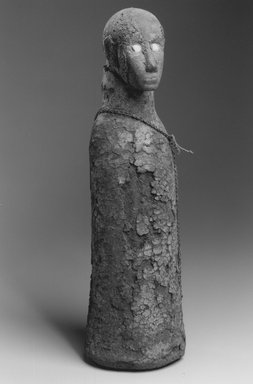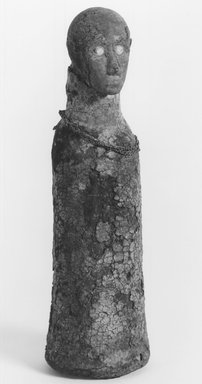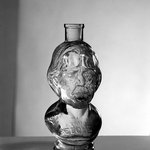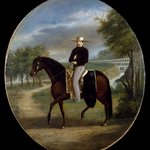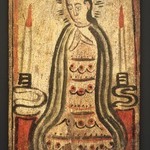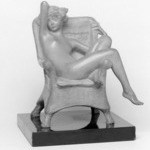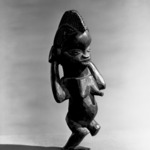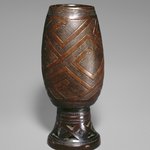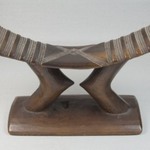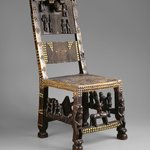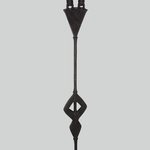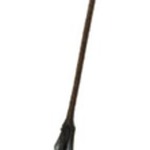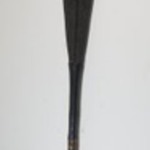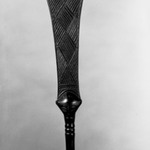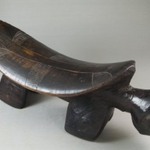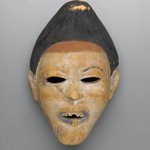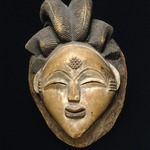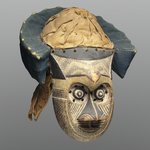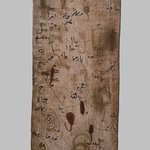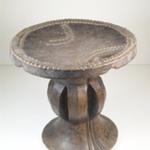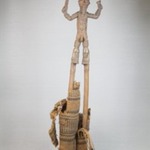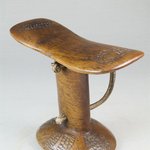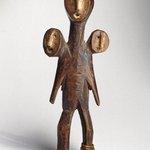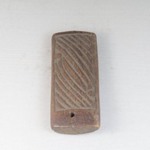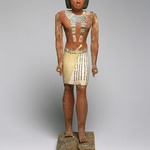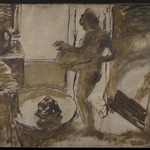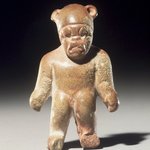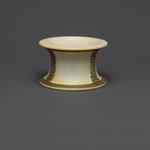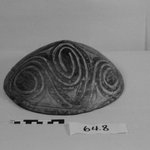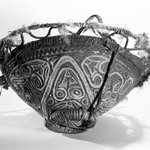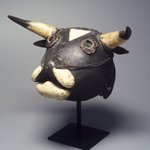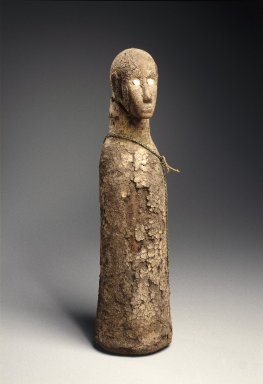

Bijagó. Soul Container (Eraminhô), late 19th or early 20th century. Wood, earth, crushed plant materials, copper alloy chain, sacrificial materials, 14 1/2 in. (36.8 cm). Brooklyn Museum, Gift of Ruth R. Gross, 71.176.4. Creative Commons-BY (Photo: Brooklyn Museum, 71.176.4_SL1.jpg)
Soul Container (Eraminhô)
Arts of Africa
Eraminhô are repositories for the souls of the dead. According to Bijagó beliefs, a person’s soul lives on after the body, but only as long as it is remembered by the person’s family. Thus it is necessary to create a repository for the soul and to provide it with sacrifices.
CULTURE
Bijagó
MEDIUM
Wood, earth, crushed plant materials, copper alloy chain, sacrificial materials
DATES
late 19th or early 20th century
DIMENSIONS
14 1/2 in. (36.8 cm) (show scale)



COLLECTIONS
Arts of Africa
ACCESSION NUMBER
71.176.4
CREDIT LINE
Gift of Ruth R. Gross
CATALOGUE DESCRIPTION
Soul Container "Eraminho" or "Orebok Ocoto"of wood, cloth and metal. Human, wooden based head, with tubular body. Figure covered with cloth, which is covered with patination. Two strands of patinated metal chains around neck. CONDITION: Chain around neck corroded as well as the greenstone eyes. Left side of head partially bared to the wood.
EXHIBITIONS
MUSEUM LOCATION
This item is not on view
CAPTION
Bijagó. Soul Container (Eraminhô), late 19th or early 20th century. Wood, earth, crushed plant materials, copper alloy chain, sacrificial materials, 14 1/2 in. (36.8 cm). Brooklyn Museum, Gift of Ruth R. Gross, 71.176.4. Creative Commons-BY (Photo: Brooklyn Museum, 71.176.4_SL1.jpg)
IMAGE
overall, 71.176.4_SL1.jpg. Brooklyn Museum photograph
"CUR" at the beginning of an image file name means that the image was created by a curatorial staff member. These study images may be digital point-and-shoot photographs, when we don\'t yet have high-quality studio photography, or they may be scans of older negatives, slides, or photographic prints, providing historical documentation of the object.
RIGHTS STATEMENT
Creative Commons-BY
You may download and use Brooklyn Museum images of this three-dimensional work in accordance with a Creative Commons license. Fair use, as understood under the United States Copyright Act, may also apply.
Please include caption information from this page and credit the Brooklyn Museum. If you need a high resolution file, please fill out our online application form (charges apply).
For further information about copyright, we recommend resources at the United States Library of Congress, Cornell University, Copyright and Cultural Institutions: Guidelines for U.S. Libraries, Archives, and Museums, and Copyright Watch.
For more information about the Museum's rights project, including how rights types are assigned, please see our blog posts on copyright.
If you have any information regarding this work and rights to it, please contact copyright@brooklynmuseum.org.
RECORD COMPLETENESS
Not every record you will find here is complete. More information is available for some works than for others, and some entries have been updated more recently. Records are frequently reviewed and revised, and we welcome any additional information you might have.
